Recent Blog Posts
Can Passengers Be Questioned or Detained During a DUI Stop?
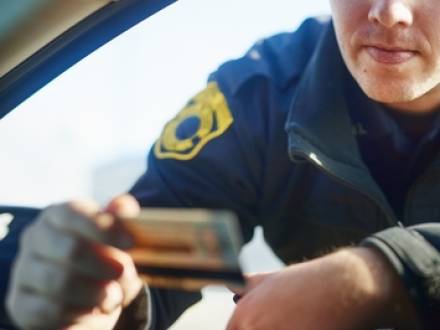 In 2025, data from the Stanford Open Policing Project showed that police make tens of thousands of traffic stops every day across the United States, many of which involve passengers who may also be subject to questioning. Passengers are often unsure where they stand legally when a vehicle is pulled over for suspected DUI, an offense that can come with harsh penalties.
In 2025, data from the Stanford Open Policing Project showed that police make tens of thousands of traffic stops every day across the United States, many of which involve passengers who may also be subject to questioning. Passengers are often unsure where they stand legally when a vehicle is pulled over for suspected DUI, an offense that can come with harsh penalties.
As of 2026, passengers still have important rights during traffic stops. If you were in a vehicle stopped in Northern Virginia, our Arlington, VA DUI defense lawyers can help explain what officers may ask of passengers and when a detention goes too far.
Can Police Ask Passengers Questions During a DUI Stop?
Police officers are allowed to ask passengers questions during a DUI stop. These questions may include where the group is coming from, who owns the vehicle, or whether anyone saw the driver drinking.
What Penalties Do First-Time DUI Offenders Face in Maryland?
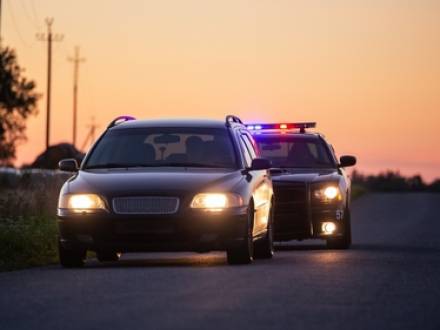 First-time DUI offenders in Maryland can face serious penalties, including jail time, fines, license suspension, and obligatory alcohol education programs. Even without a prior record, a DUI conviction can create immediate and long-term problems.
First-time DUI offenders in Maryland can face serious penalties, including jail time, fines, license suspension, and obligatory alcohol education programs. Even without a prior record, a DUI conviction can create immediate and long-term problems.
According to the Maryland Transportation Authority, nearly 800 people have been killed in crashes involving an impaired driver over the past five years, and about one-third of all roadway deaths in the state involve drunk driving.
As of 2026, Maryland courts still offer some leniency sometimes for first-time DUI offenders. If you were arrested for DUI, contact Arrested for a DUI, LLC today. Our Greenbelt, MD DUI defense lawyers can help you understand what penalties you may face and what options are available to fight the charges.
Is Marijuana DUI Treated the Same as Alcohol DUI in Virginia?
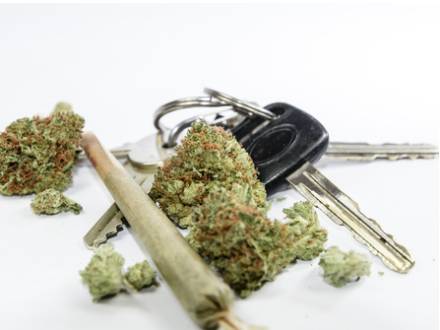 In Virginia, marijuana DUI and alcohol DUI fall under the same driving under the influence law, but they are handled very differently in practice. That difference matters because it affects what evidence police rely on and how these cases are defended.
In Virginia, marijuana DUI and alcohol DUI fall under the same driving under the influence law, but they are handled very differently in practice. That difference matters because it affects what evidence police rely on and how these cases are defended.
Our Reston, VA DUI defense lawyers come across a great deal of confusion around this issue, especially as marijuana laws have changed in recent years. As of 2025, Virginia law still makes it illegal to drive while impaired by marijuana, even though possession laws are no longer the same as they once were.
What Virginia Law Says About DUI Charges
Virginia DUI charges are governed by Virginia Code § 18.2-266. This law prohibits driving while impaired by alcohol, drugs, or a combination of both. That includes marijuana. Although alcohol and marijuana are covered by the same statute, the way impairment is proven is not the same. Alcohol cases rely heavily on numerical testing. Marijuana cases do not.
What Happens After a Second or Third DUI in Maryland?
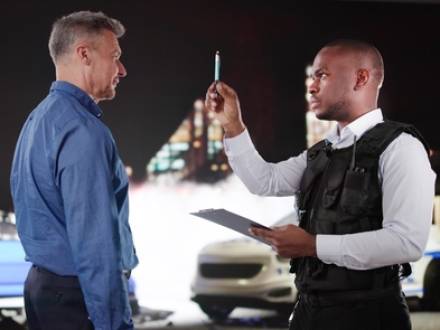 A second or third DUI charge in Maryland is typically harder to challenge than a first DUI, especially without legal representation. The penalties are stricter, making the stakes much higher. If you were arrested for driving under the influence and it is not the first time, our Germantown, MD DUI defense lawyers can explain what it takes to build a strong defense strategy.
A second or third DUI charge in Maryland is typically harder to challenge than a first DUI, especially without legal representation. The penalties are stricter, making the stakes much higher. If you were arrested for driving under the influence and it is not the first time, our Germantown, MD DUI defense lawyers can explain what it takes to build a strong defense strategy.
How Long Does a DUI Stay on Your Record in Maryland?
Under Md. Criminal Procedure § 10-105, you may be able to clear certain charges from your record if they were dismissed or ended in probation before judgment (PBJ). The same is true if the prosecutor decided not to continue with the case. This can give you a fresh start if your case was resolved without a conviction.
Will I Lose My CDL if I Get a DUI in Virginia?
 Being charged for driving under the influence (DUI) can have even more severe consequences when you have a commercial driver’s license (CDL). If you drive for a living, a single mistake can threaten your livelihood. However, a charge is not a conviction. Our Herndon, VA DUI defense lawyers can explain the potential penalties and help you build a strong defense for you.
Being charged for driving under the influence (DUI) can have even more severe consequences when you have a commercial driver’s license (CDL). If you drive for a living, a single mistake can threaten your livelihood. However, a charge is not a conviction. Our Herndon, VA DUI defense lawyers can explain the potential penalties and help you build a strong defense for you.
Are DUI Laws Different for CDL Holders in Virginia?
When it comes to DUIs, the rules for CDL holders are much stricter than for drivers with a standard license. Under Virginia Code § 46.2-341.24, you can be charged with DUI if your blood alcohol concentration (BAC) is 0.04 percent or higher while driving a commercial vehicle. That is half the legal limit for non-commercial drivers.
What Happens if a Minor Is Caught Drinking and Driving in Maryland?
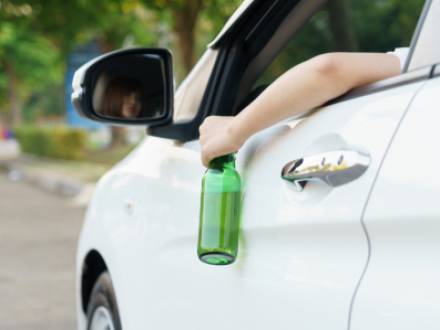 Maryland has strict laws designed to discourage alcohol use by anyone under 21 and to prevent accidents caused by impaired driving. Even a small amount of alcohol in a young driver’s system can lead to criminal charges, license suspension, and long-term consequences. These cases can affect not only the young driver but also their family and future opportunities. Our Silver Spring, MD DUI defense lawyers can walk you through the legal process and possible defenses.
Maryland has strict laws designed to discourage alcohol use by anyone under 21 and to prevent accidents caused by impaired driving. Even a small amount of alcohol in a young driver’s system can lead to criminal charges, license suspension, and long-term consequences. These cases can affect not only the young driver but also their family and future opportunities. Our Silver Spring, MD DUI defense lawyers can walk you through the legal process and possible defenses.
What Is Maryland’s Zero Tolerance Law for Underage Drivers?
Maryland follows a "zero tolerance" rule for anyone under the age of 21 who drinks and drives. Under Md. Code, Transp. § 16-113(b), any detectable amount of alcohol in your system can lead to a DUI charge.
Common Police Mistakes During a DUI Stop in Virginia
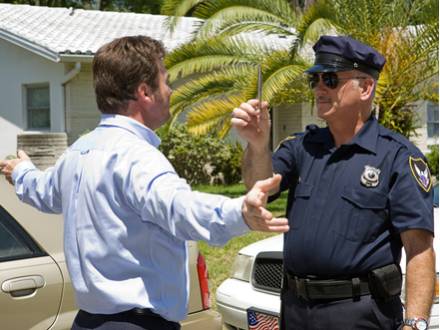 Police officers must follow strict laws and procedures during a DUI stop. Even one mistake could mean that key evidence is thrown out or the entire case is dismissed. If you think something went wrong during your arrest, speak with our experienced Fairfax, VA DUI defense lawyers as soon as possible. We will investigate your case and start preparing a defense strategy immediately.
Police officers must follow strict laws and procedures during a DUI stop. Even one mistake could mean that key evidence is thrown out or the entire case is dismissed. If you think something went wrong during your arrest, speak with our experienced Fairfax, VA DUI defense lawyers as soon as possible. We will investigate your case and start preparing a defense strategy immediately.
Can Police Pull You Over Without Good Reason in Virginia?
Police cannot pull you over without legal cause. Virginia law dictates that officers must have reasonable suspicion that a traffic violation or crime has occurred before they can pull you over. This means the officer must witness a clear traffic violation or have strong evidence that a crime has been committed.
If you were stopped for vague reasons, such as driving late at night or looking nervous, your attorney may challenge the legality of the stop. If the court decides the officer lacked reasonable suspicion, any evidence collected afterward, including field sobriety or breath test results, could be suppressed.
Can I Refuse a Breathalyzer Test in Maryland?
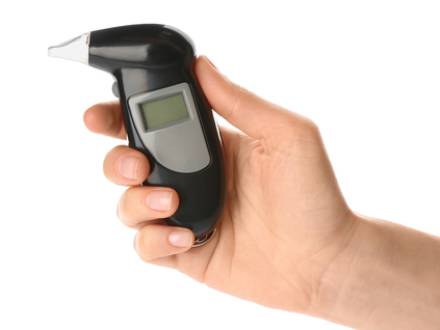 If you are pulled over on suspicion of drunk driving, the officer will probably ask you to take a breathalyzer test. Refusing may protect you from giving the state direct evidence of your blood alcohol concentration (BAC), but it can also bring serious penalties on its own. If you are facing DUI or DWI charges, a Potomac, MD DUI defense lawyer can help you understand the law and prepare for court.
If you are pulled over on suspicion of drunk driving, the officer will probably ask you to take a breathalyzer test. Refusing may protect you from giving the state direct evidence of your blood alcohol concentration (BAC), but it can also bring serious penalties on its own. If you are facing DUI or DWI charges, a Potomac, MD DUI defense lawyer can help you understand the law and prepare for court.
Does Maryland Have an Implied Consent Law?
Under Maryland Transportation § 16-205.1, every driver who operates a vehicle on public roads automatically agrees to submit to a chemical test. This is called "implied consent." An important point is that the police officer has to have reasonable grounds to suspect drunk driving to request a breath test.
How Police Test for Marijuana in DUI Stops in Virginia
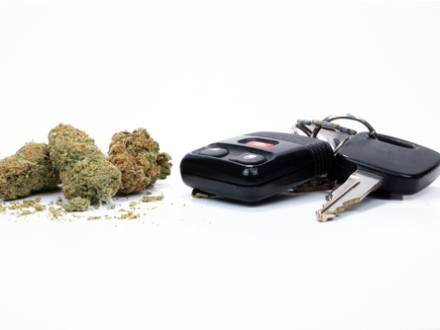 When Virginia legalized small amounts of marijuana for personal use, many drivers assumed that using cannabis and driving would be treated the same way as having a glass of wine with dinner. However, that assumption can lead to serious legal trouble.
When Virginia legalized small amounts of marijuana for personal use, many drivers assumed that using cannabis and driving would be treated the same way as having a glass of wine with dinner. However, that assumption can lead to serious legal trouble.
Driving under the influence of marijuana is a criminal offense under Virginia law. Police officers across the state use multiple methods to detect marijuana DUI. If you have been charged, you still have the right to challenge the allegations, and our McLean, VA marijuana DUI defense lawyers can help.
Is Marijuana Illegal in Virginia?
Virginia law permits adults 21 and older to possess up to one ounce of marijuana under Virginia Code § 4.1-1100. However, driving after using weed is still illegal under Virginia Code § 18.2-266. Unlike alcohol DUIs, no set THC limit automatically proves impairment. Instead, prosecutors must rely on evidence like officer observations and testing to show a driver was under the influence at the time of the stop.
What Is the Difference Between DUI and DWI in Maryland?
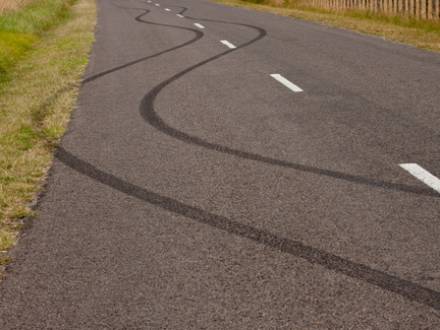 A common misconception is that driving under the influence (DUI) and driving while impaired (DWI) are interchangeable terms in Maryland. While both charges carry serious penalties, the differences come down to the level of impairment and the evidence prosecutors can present in court. If you are accused of either offense, a Gaithersburg, MD DUI defense attorney can explain your rights and help you build a strong defense.
A common misconception is that driving under the influence (DUI) and driving while impaired (DWI) are interchangeable terms in Maryland. While both charges carry serious penalties, the differences come down to the level of impairment and the evidence prosecutors can present in court. If you are accused of either offense, a Gaithersburg, MD DUI defense attorney can explain your rights and help you build a strong defense.
DUI vs. DWI Under Maryland Law
Under Md. Code, Transportation § 21-902, you cannot drive or attempt to drive while you are under the influence of alcohol or impaired by drugs. A DUI is more severe than a DWI, and it usually applies when a driver’s blood alcohol concentration (BAC) is 0.08 percent or higher. At this level, prosecutors do not need to prove actual impairment. The BAC result is enough for you to be charged.



